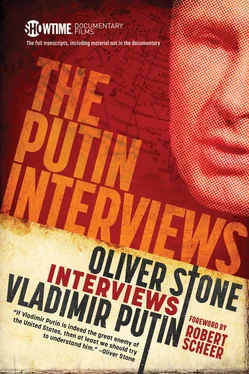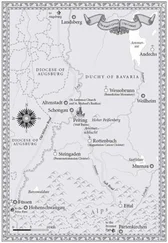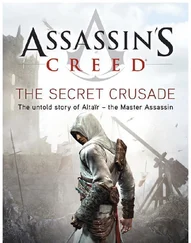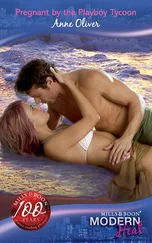VP:Yes indeed we were brought to the brink, so to speak.
OS:To the brink—you admit to the brink?
VP:Yes, certainly. We had to respond somehow.
OS:Well, finally you’re admitting it.
VP:Yes, we were open to positive dialogue. We did everything to achieve a political settlement. But they had to give their support to this unconstitutional seizure of power. I still wonder why they had to do that. Incidentally, that was a first step to further destabilization of the country. And this happens still. So, first the power is seized and right now these forces that have seized power are trying to make those who disagree with that accept this as a fact. This is what is happening to the south and eastern part of Ukraine. Instead of engaging in a political dialogue, which is quite possible, that is what they’re doing.
OS:Well, you have to get your story out there. Your side of the story—not only on RT, but hopefully with some intelligence releases, some shots, some images that would tell the story. You have to tell this story, you have to somehow get your raw intelligence into the system.
VP:You see, that’s quite impossible, because this point of view that we present is ignored by the world media. And if it’s ignored, not on equal footing with the other perspectives, then almost no one hears it. So a narrative is being constructed of some evil Russia—
OS:—I wouldn’t give up on that, I wouldn’t give up. You have to fight back. And you’re doing a great job but more, better.
VP:I’ll bear that in mind, but I think this critique is justified.
OS:[teasing] No, Dmitry’s done a lousy job on that. [Putin’s press secretary and confidant]
VP:Well, this is not up to him. This is not the task he’s supposed to do.
OS:I know.
VP:His task is to provide information and support to my everyday functions…. It’s my job and I’m not doing a very good job of it.
OS:You’re doing a great job, but you work too hard—you’ve got to relax. I think you should take a vacation. Go to Palm Beach, relax, sit on the beach, play some golf, talk.
VP:I understand the hint. Well, I envy him.
ON SOVEREIGNTY
OS:In closing, you inherited a Russian state that was collapsing at the end of the last century. You came to office accidentally and people were in great misery. There was no sense of a central power and the point is that I think Russia had to be rebuilt so that it wouldn’t collapse again. Mr. Gorbachev’s ideal of restructuring didn’t happen. The West, in a sense, supported disorder. A vision which, you said, Russia must never again embrace. Then you said sovereignty is the key. Sovereignty is the key. I believe you said one time that a state in order to exist and have sovereignty has, amongst its obligations, to pay the pensions of older people. Yes?
VP:Yes, certainly. In general, and especially right now, a country can only ensure its sovereignty if it secures a good economic growth rate—not just the economic growth rate, you’ve got to secure economic development. And in this sense, despite the good assessment you’ve given to my job, I think both myself and my colleagues could have done an even better job. Even though that would have been immensely hard, because we were always facing a dilemma. We had to choose between a bad decision and an even worse decision. But that happens all the time everywhere. You are always faced with a choice. And you’ve got to make it. Liberally-minded people think that we should have taken harsher, tougher measures. I thought that the harshness had to correlate to the standard of living to help people. We had to go step by step in improving the lives of our people.
Back then, in 2000, more than 40 percent of our citizens were living below the poverty line, the system of social security was in ruin, let alone the armed forces which all but ceased to exist. Separatism was holding sway. I’m not going to elaborate on that, but I’m going to say that the Russian constitution didn’t apply all throughout our territory and the Caucasus was seeing a war that was raging—a civil war, which was fueled by radical elements from abroad. And in the end that civil war degenerated into terrorism. The situation was very difficult. But the Russian people and all the peoples of Russia, they’ve got a very important quality and that is love for their own nation, for their country. The sense of danger, the sense of compassion as well as the willingness to make sacrifices for the interests of their country. And thanks to these qualities of the Russian people and other peoples of Russia, we have managed to get through that difficult period. But we cannot exploit these qualities endlessly. We want our people to have better lives. Liberal-minded economists say we should have economized more or we shouldn’t have increased the wages, the salaries, the pensions. But you see our people still have a very, very modest standard of living. I want rank and file citizens, families to see that our country is recovering. Anyhow, we are trying to pursue a very restrained, reserved economic policy.
OS:Getting back to sovereignty.
VP:We are trying to use the revenues from oil and gas. We will save this money, but we try to spend what we get from other sectors. For us that is a very difficult task. As you can see we have increased the real income of our population by a magnitude of several times. Last year, because of high inflation, real income was reduced a little bit. But at the end of last year we saw a pickup of that real income. Last year we managed to reduce the inflation rate to a historical record low—it was 5.4 percent or so. Even though our target was 6.2 percent. And we’re going to target inflation and I do hope that we’ll be able to bring it down to four percent. We’ve got a relatively low unemployment rate at around 5.4 percent. In spite of all the political restrictions, we’ve managed to keep our reserves, to stabilize our economy. I’m confident that this year we’re going to witness more economic growth, albeit modest. [182] Background Information: See, “The Russian Economy Inches Forward: Will That Suffice to Turn the Tide?” Russia Economic Report – The World Bank (November 9, 2016). Retrieved at: http://www.worldbank.org/en/country/russia/publication/rer
Our monetary policy is very well-balanced. It’s being implemented by the Central Bank and by the government.
OS:You should thank Obama—sanctions were good for you.
VP:Our agricultural producers have to thank the Obama administration. Due to the measures we’ve introduced to counter the sanctions against us. These countermeasures are mostly related to closing our market to agricultural produce. And thanks to these measures, the agricultural producers have managed to increase annually their production by more than three percent. Last year we saw record crops of wheat and other grains. And I know you love Russia, so it gives me great pleasure to tell you that Russia ranks first in the world in terms of wheat export.
OS:I like bread—the black bread is my favorite.
VP:We used to buy grains and wheat.
OS:From Canada, yeah.
VP:Right now we produce less than the US or Canada or China. But these countries have larger consumption rates. And as far as per capita production is concerned, it’s very good.
OS:I believe you. Sovereignty is not just economic though. I just want to tell you a quick story—last night… I mean the Russian people have guts. And last night there was a TV series on television Channel 1, I think it was. I saw it—prime time, 8 p.m. It was about the Germans and the Russians. And it was a very interesting story. It was in Russian. I didn’t understand much. But I got a sense of it. In that story, the Russians again behaved very courageously, very courageous and were very good fighters, and outwitted the Nazis. And you know, TV stuff, but it was damn good. It was well-made. The actors were really terrific.
Читать дальше












